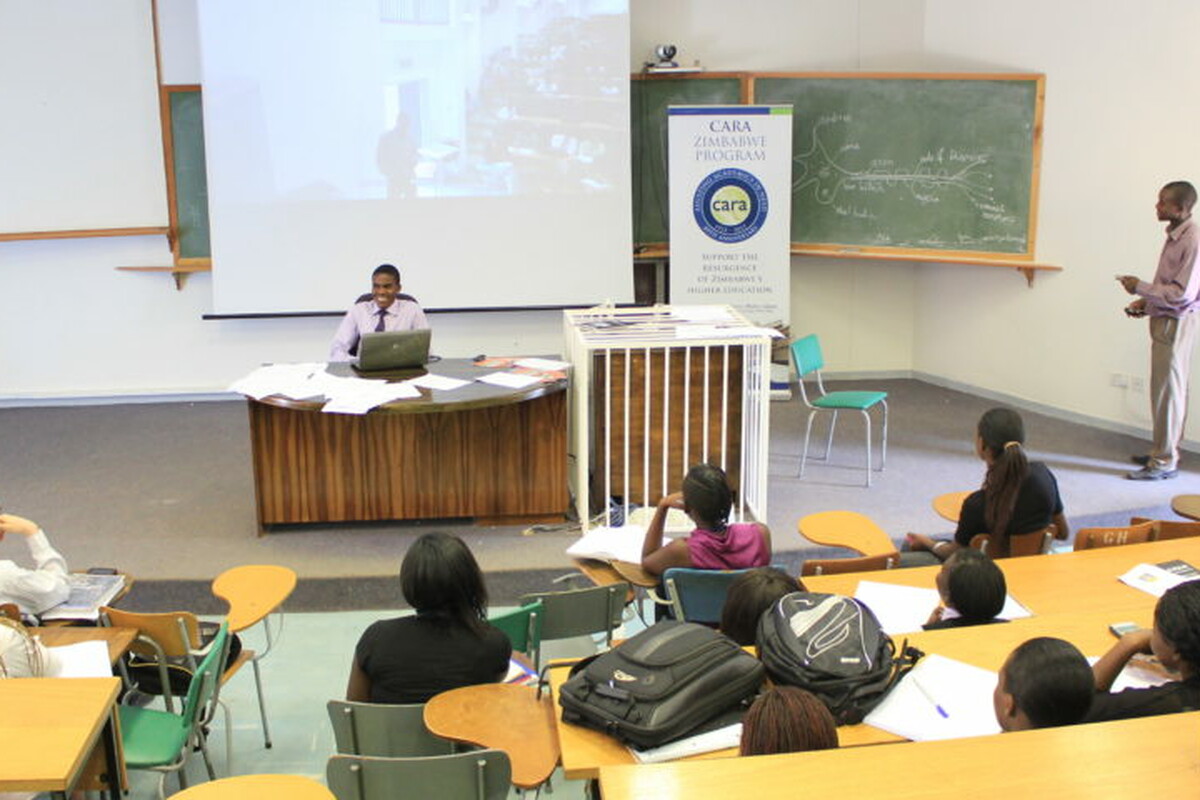
- Home
- >
- what we do
- >
- caras i...
Cara’s Iraq and Zimbabwe Programmes
Regional initiatives allow Cara to provide innovative and effective support to academics who are working on in their country despite the risks, or who have been forced into exile nearby.
Cara launched and ran its first two regionally-based Programmes in the 2000s. Each was a ground-breaking and carefully-targeted response to a particular situation, and was time-limited.

Cara's Zimbabwe Programme - The Virtual Lecture Hall
Cara’s Iraq Programme
In response to the violence that followed the 2003 coalition invasion of Iraq, Cara established its first regional programme, its Iraq Programme (2006-2012). Run through Cara’s office in Amman, Jordan, this provided a wide range of cooperation activities designed to help rebuild Iraqi research and teaching capacities by bringing academics in Iraq together with those in Jordan and elsewhere, and with their counterparts in the UK. In particular, over seventy academics from sixteen UK and eleven Iraqi institutions came together within the framework of the Iraq Research Fellowship Programme (2009-2012) to deliver high-quality research outcomes which influenced policy and practice within Iraqi ministries, the UN and international agencies responding to the crisis and promoted long-term collaborations. Cara also supported regional ‘communities of interest’ around themes of regional relevance, with a particular focus on the often-neglected social sciences, including gender issues etc.
Cara’s Zimbabwe Programme
Cara’s second regional programme, its Zimbabwe Programme, was launched in 2009 in response to a marked increase in the number of academics fleeing Zimbabwe, amid reports of a dramatic decline in the quality of higher education. The Programme offered grants and fellowships to pay for vital equipment and supplies, and in 2012 established a ‘Virtual Lecture Hall’ at the University of Zimbabwe. This made it possible for Zimbabwean academics in exile and others to connect in real time with the colleges and faculties of health and veterinary sciences, to plug knowledge gaps identified by the relevant University Deans, to improve standards of teaching and research and to facilitate increased networking and collaboration. In response to demand, a second mobile system was installed in October 2013. Responsibility for the Virtual Lecture Hall was formally handed over to the University of Zimbabwe later that year, when the Programme was closed.
